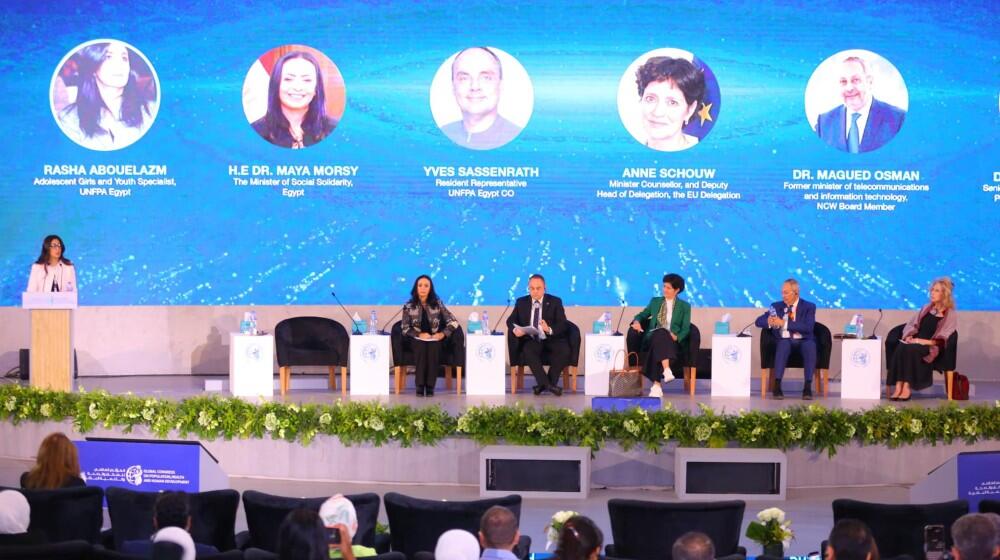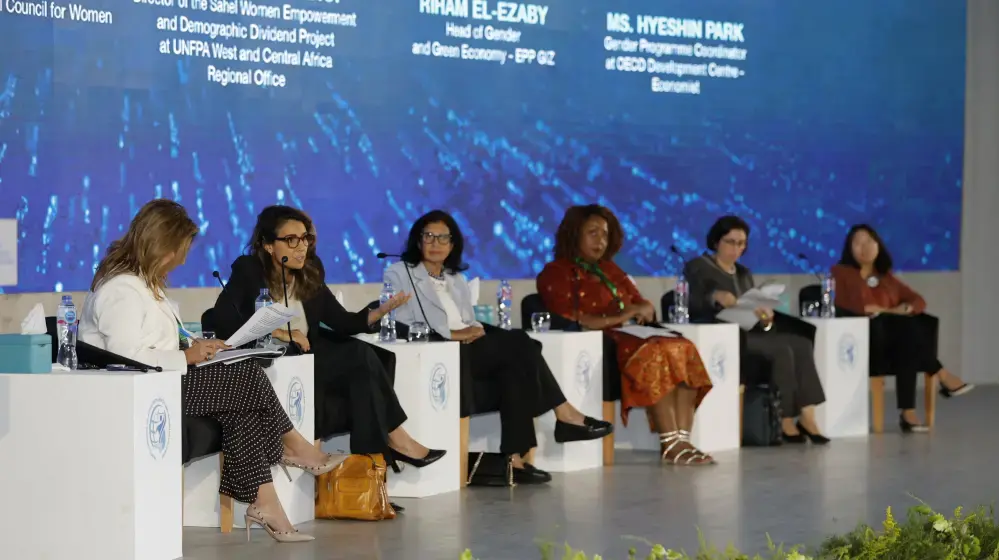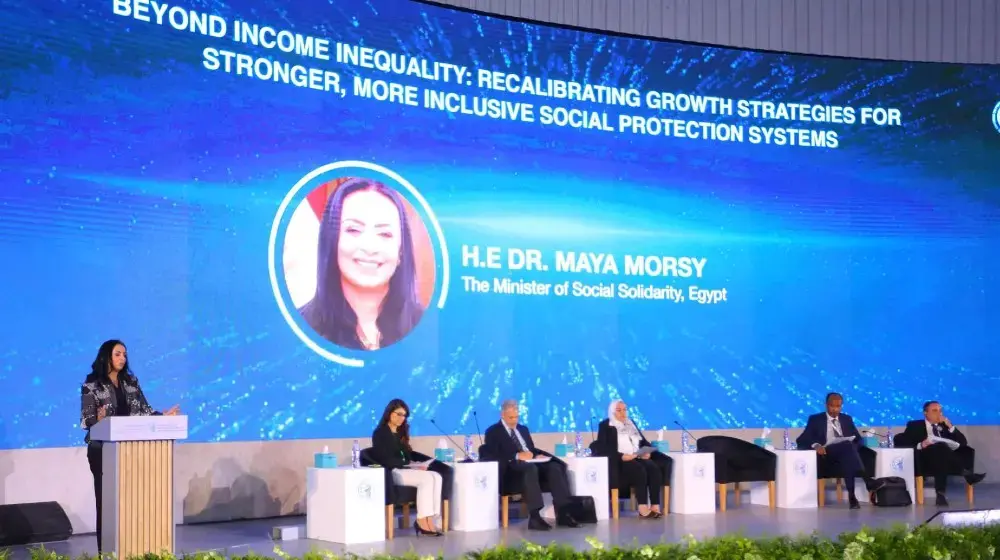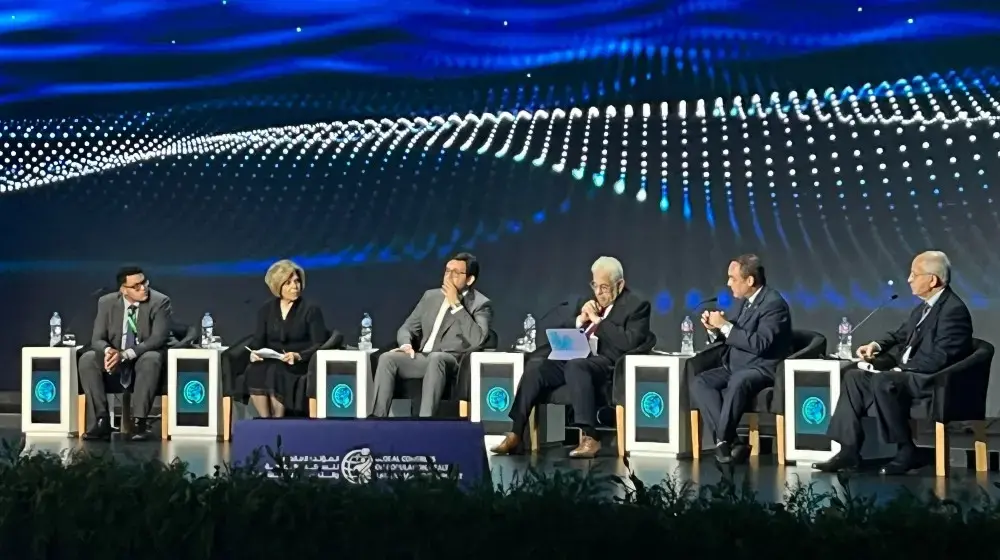UNFPA organized a panel discussion on the Noura program and enhancing the service delivery and information on reproductive health and menstrual health management for adolescent girls on October 24 at the Global Congress on Population, Health and Human Development.
The panel brought together Dr. Maya Morsy, Minister of Social Solidarity, Mr. Yves Sassenrath, UNFPA Representative in Egypt, Ms. Anne Schouw, Deputy Head of EU Delegation to Egypt, Dr. Magued Osman, Former Minister of Telecommunications and Information Technology, and Board Member of the National Council for Women, and Dr. Judith Bruce, Senior Associate and Policy Analyst at the Population Council. The panel was moderated by Ms. Rasha Abouelazm, Adolescent Girls and Youth Programme Specialist at UNFPA Egypt.
The “Noura” Framework was launched under the leadership of the National Council for Women, in partnership with UNFPA in 2021 as a girls’ empowerment initiative. It is a tailored 40 week program where girls, through a guided curriculum, are trained to build their social, health and economic assets.
Dr. Morsy said Noura is a full-fledged program that includes social protection, financial inclusion, community work, and even a cartoon that was aired on television.
She said that the program includes extracurricular activities, not just for girls, but for the whole family. Dr. Morsy added that Noura is a comprehensive investment framework that the Egyptian government will lead with better coordination through the Cabinet and with the National Council for Women.
Meanwhile, Sassenrath explained that UNFPA adopts a holistic, lifescycle approach towards women’s health, highlighting the importance of adapting programs and interventions to the cultural context.
“Culture is how we identity, it is who we are and how we express ourselves,” he said, “we want this to anchor the principles of Noura.”
On her part, Schouw highlighted the important of including women and girls in the decision-making and in leadership positions.
“Working on women’s rights is important in its own self, but also important for the entire development of a country – which cannot take place if women are not part of that process,” she said.
Watch the full session





